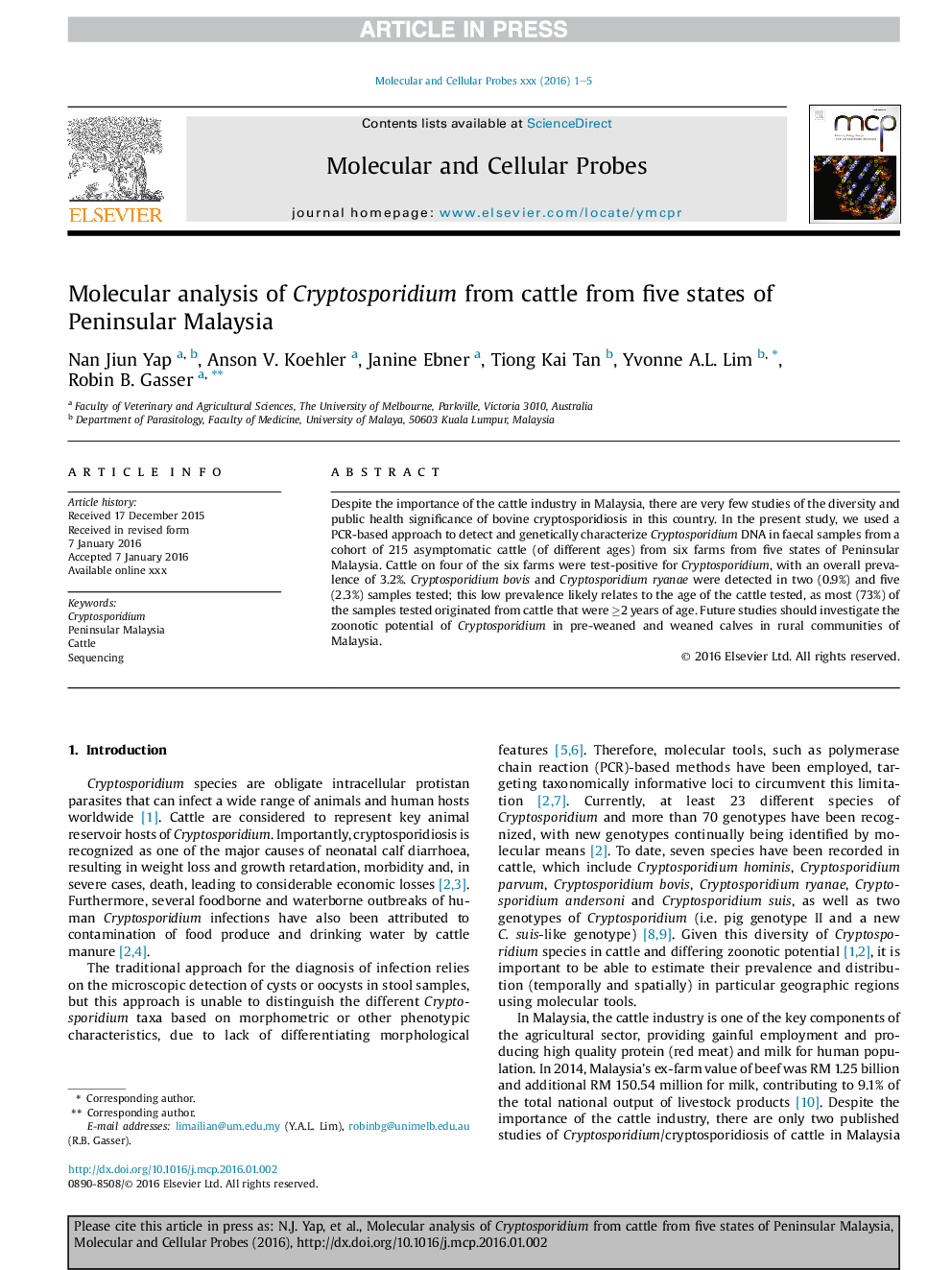| Article ID | Journal | Published Year | Pages | File Type |
|---|---|---|---|---|
| 10957668 | Molecular and Cellular Probes | 2016 | 5 Pages |
Abstract
Despite the importance of the cattle industry in Malaysia, there are very few studies of the diversity and public health significance of bovine cryptosporidiosis in this country. In the present study, we used a PCR-based approach to detect and genetically characterize Cryptosporidium DNA in faecal samples from a cohort of 215 asymptomatic cattle (of different ages) from six farms from five states of Peninsular Malaysia. Cattle on four of the six farms were test-positive for Cryptosporidium, with an overall prevalence of 3.2%. Cryptosporidium bovis and Cryptosporidium ryanae were detected in two (0.9%) and five (2.3%) samples tested; this low prevalence likely relates to the age of the cattle tested, as most (73%) of the samples tested originated from cattle that were â¥2 years of age. Future studies should investigate the zoonotic potential of Cryptosporidium in pre-weaned and weaned calves in rural communities of Malaysia.
Related Topics
Life Sciences
Biochemistry, Genetics and Molecular Biology
Cell Biology
Authors
Nan Jiun Yap, Anson V. Koehler, Janine Ebner, Tiong Kai Tan, Yvonne A.L. Lim, Robin B. Gasser,
